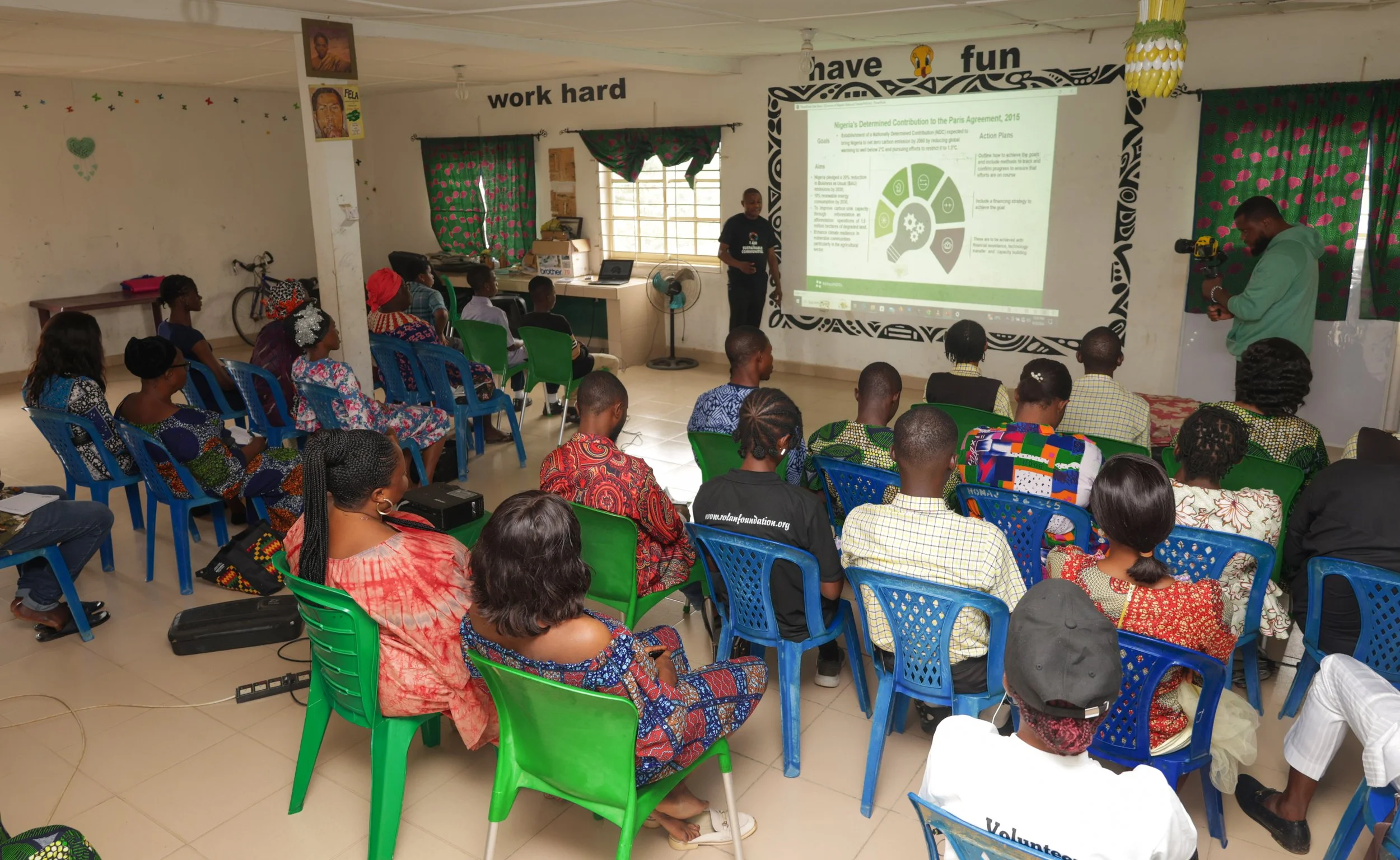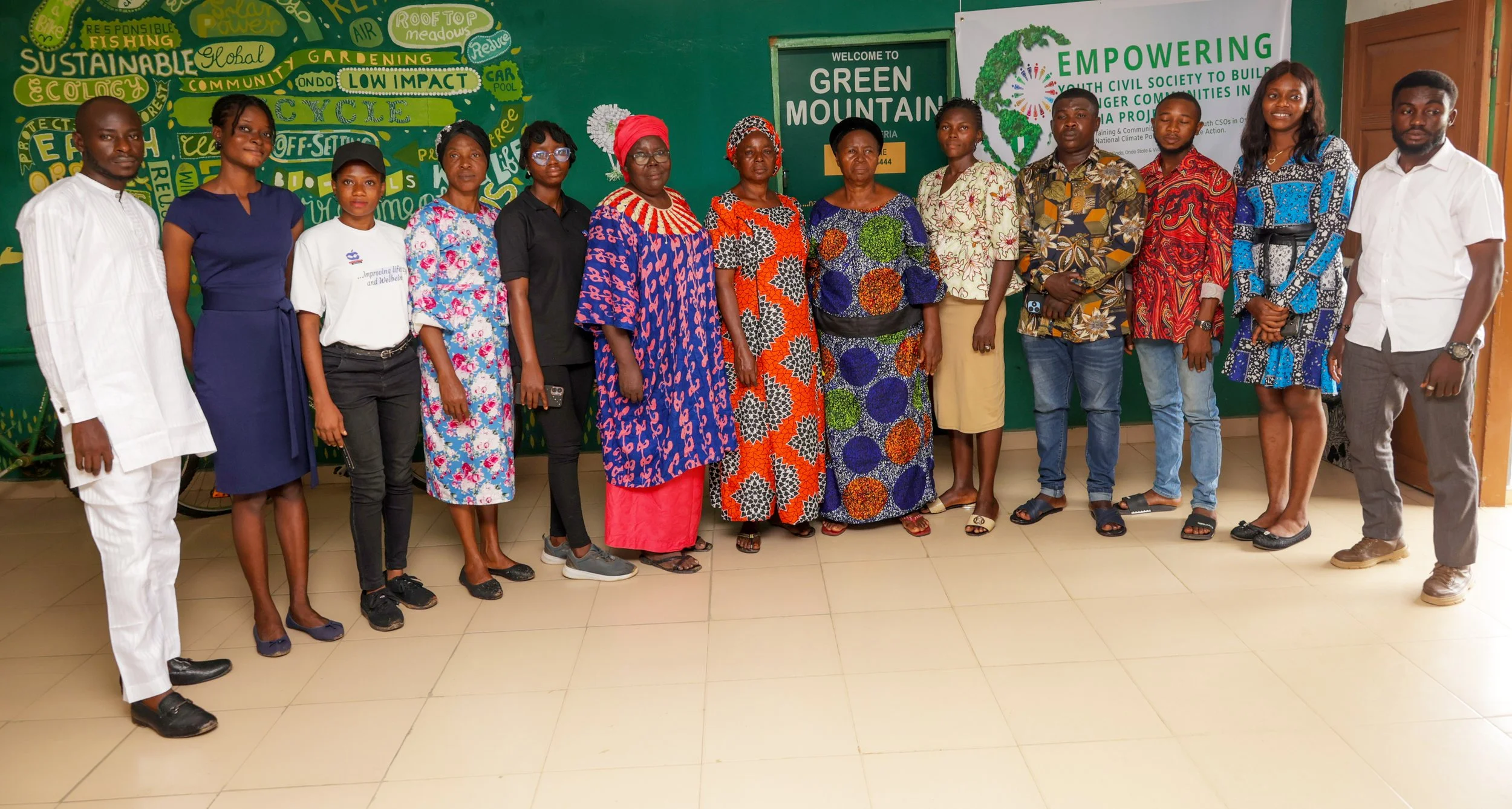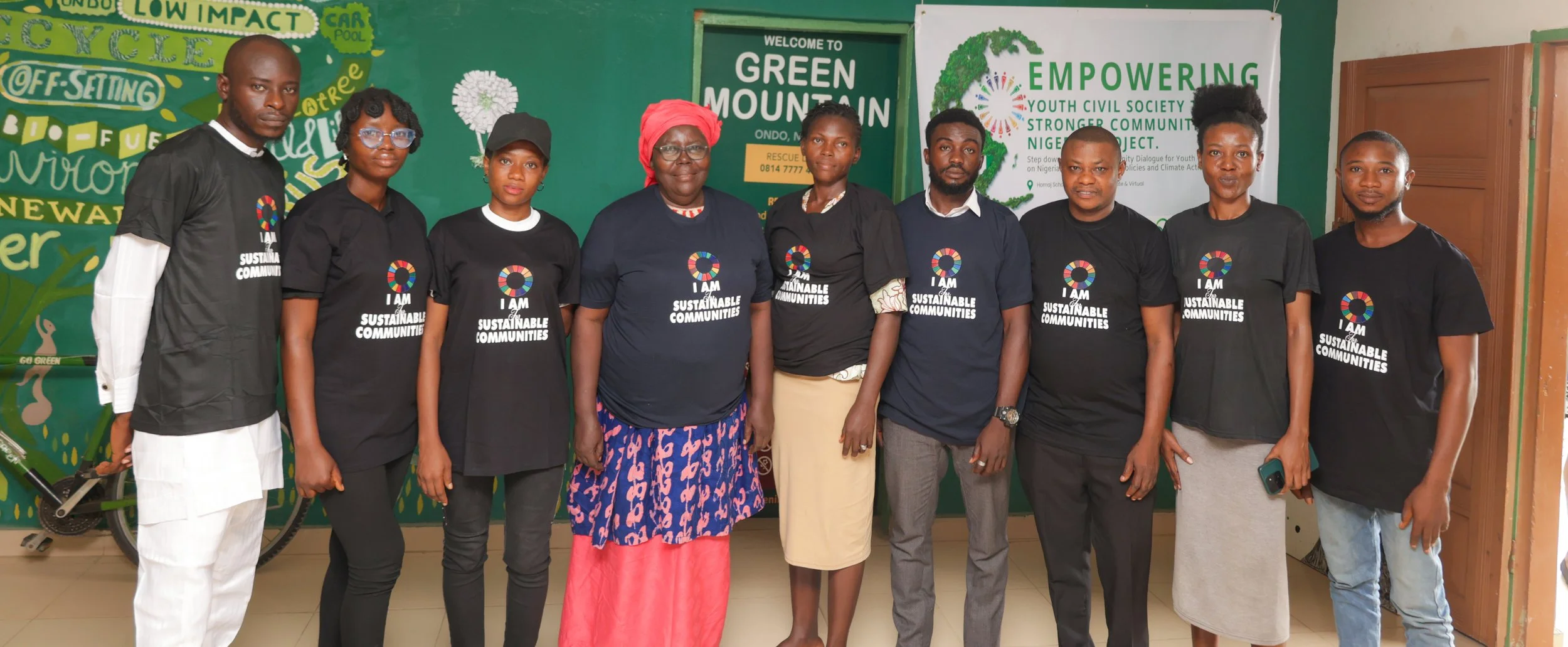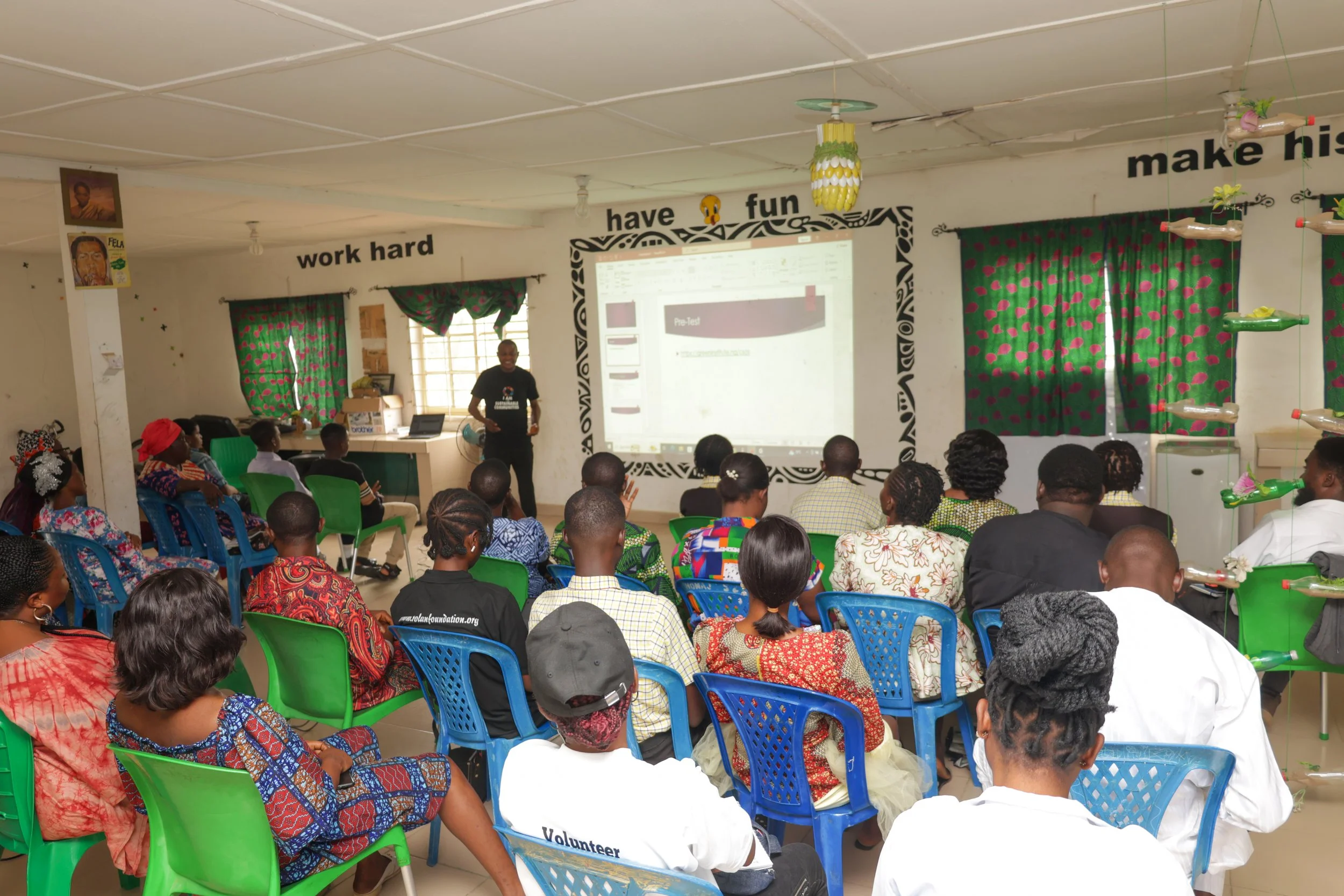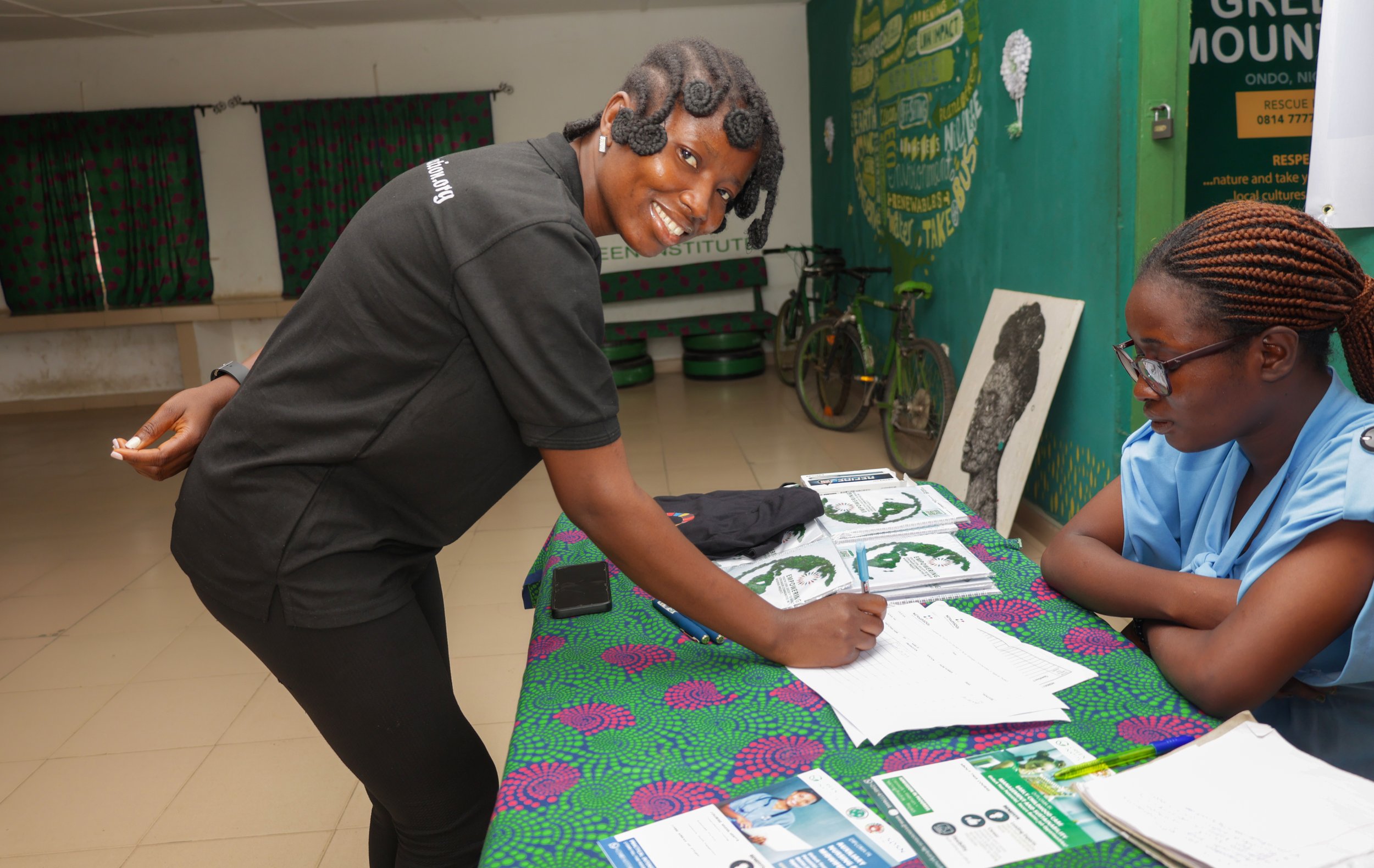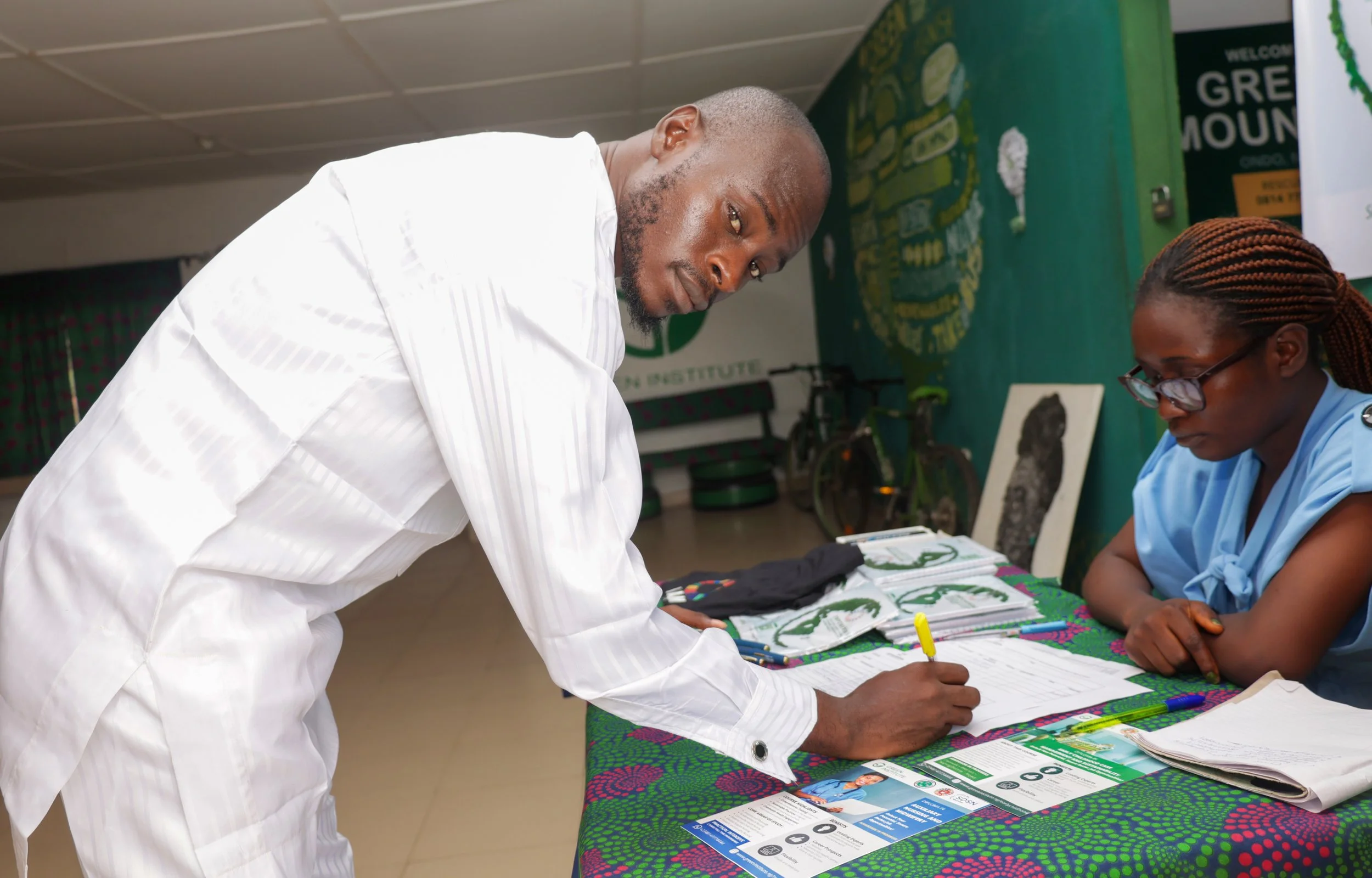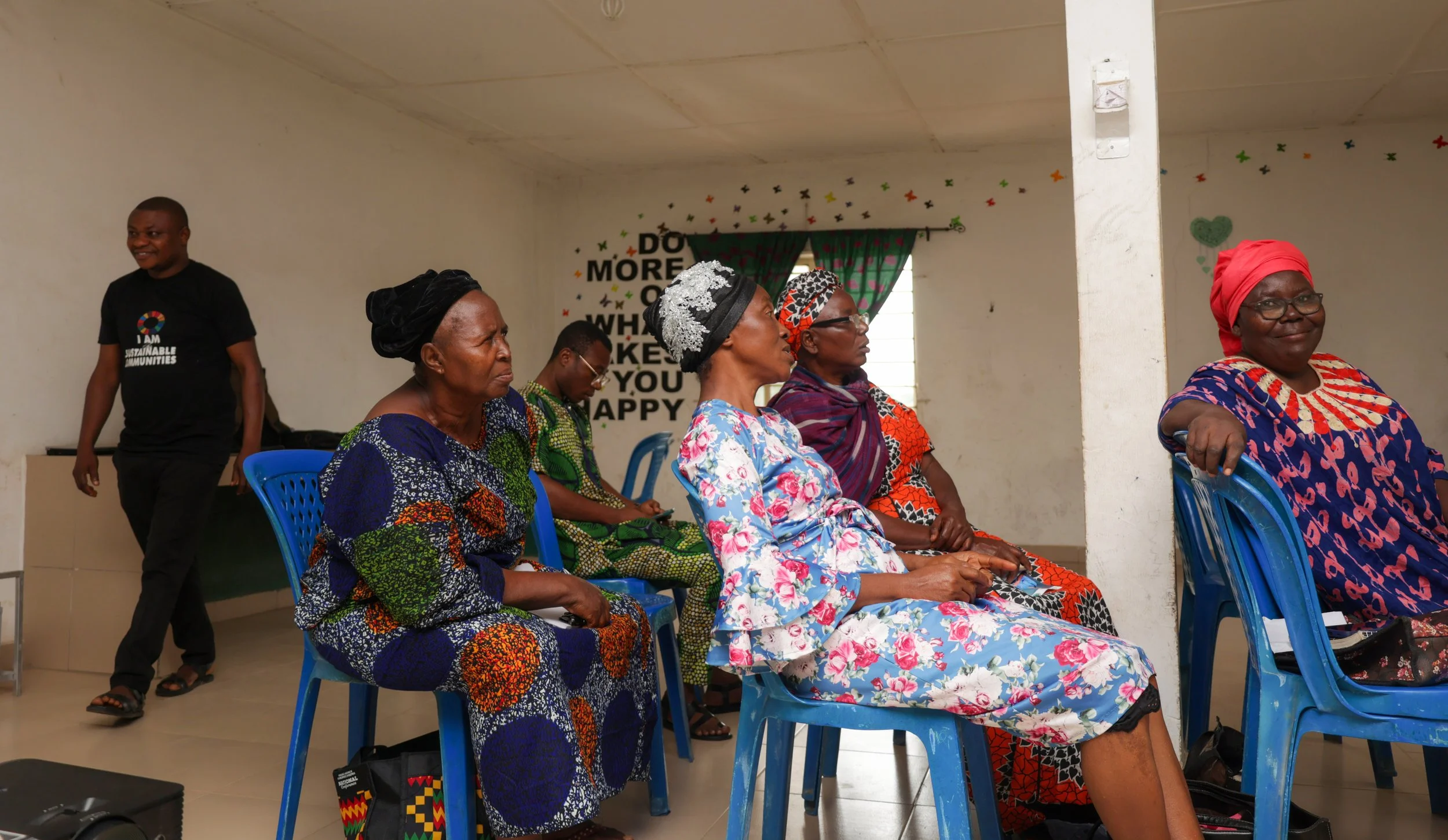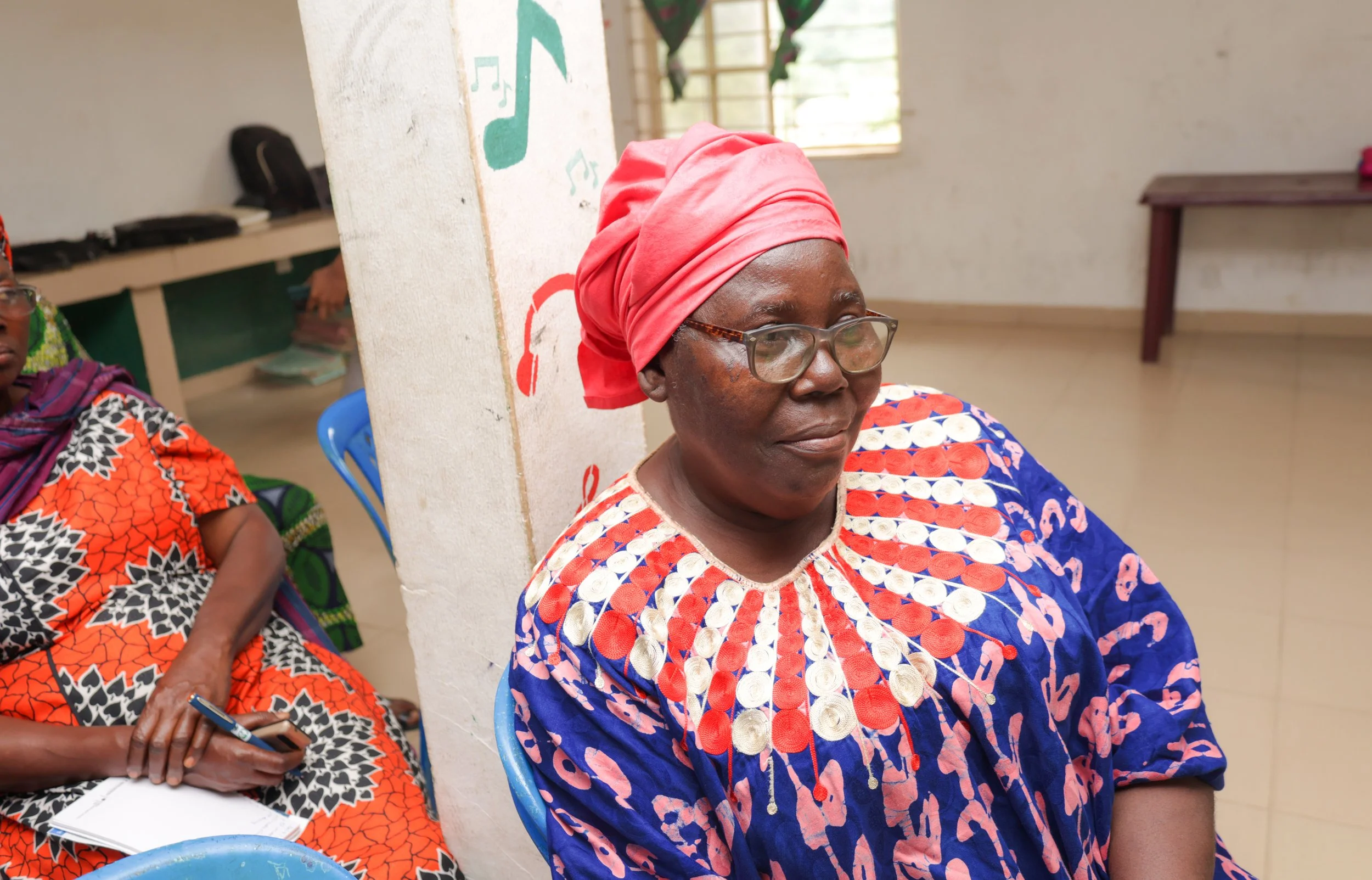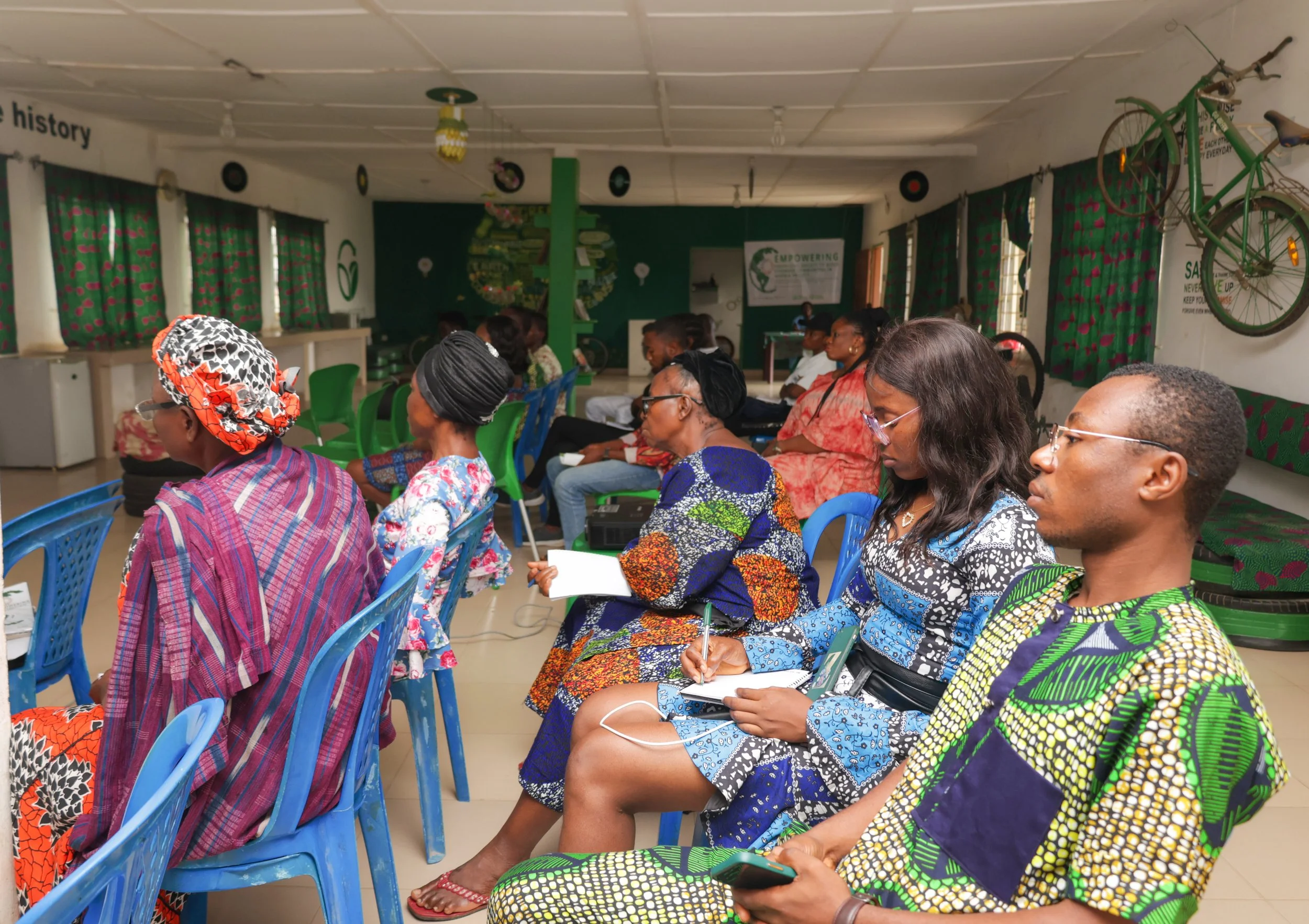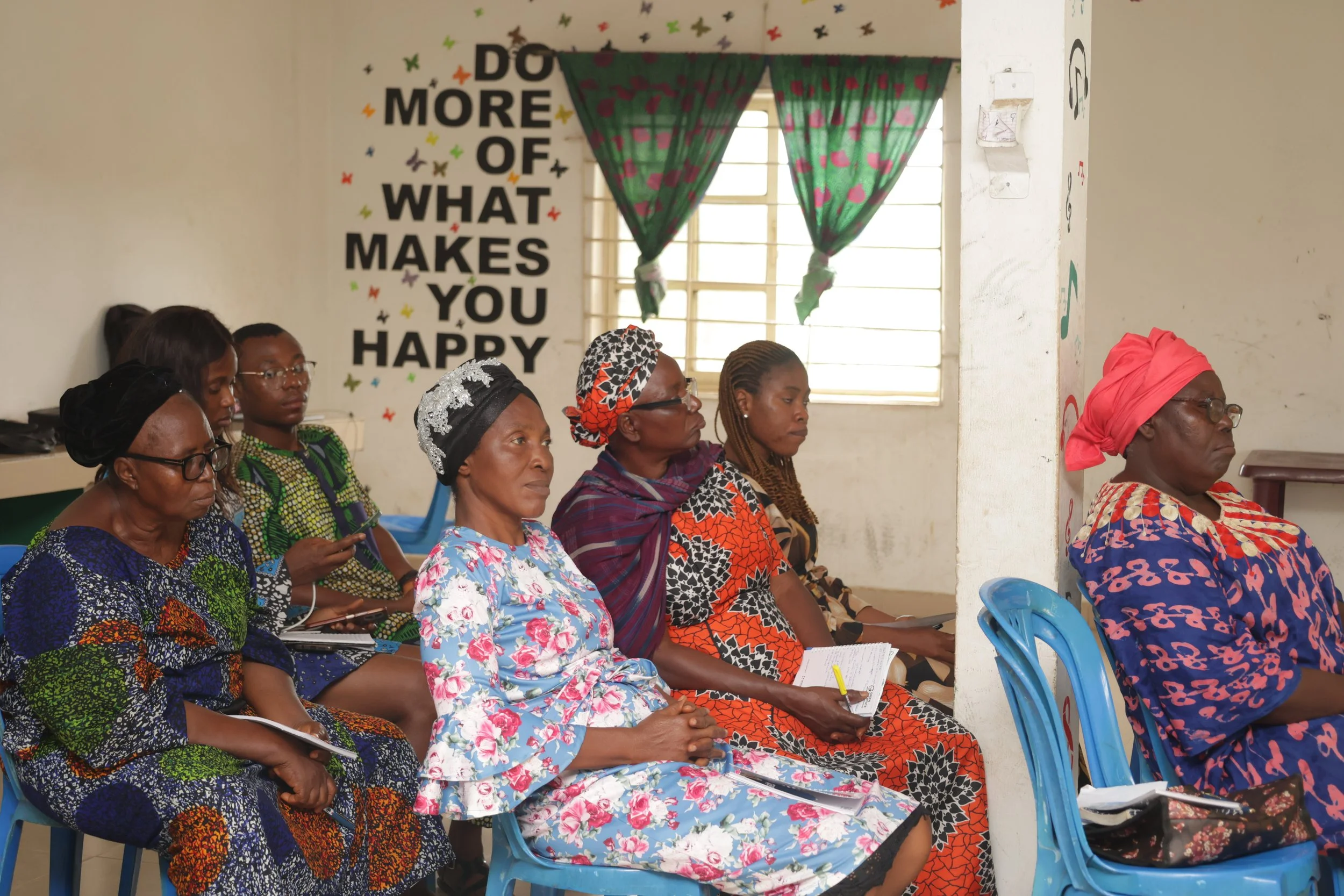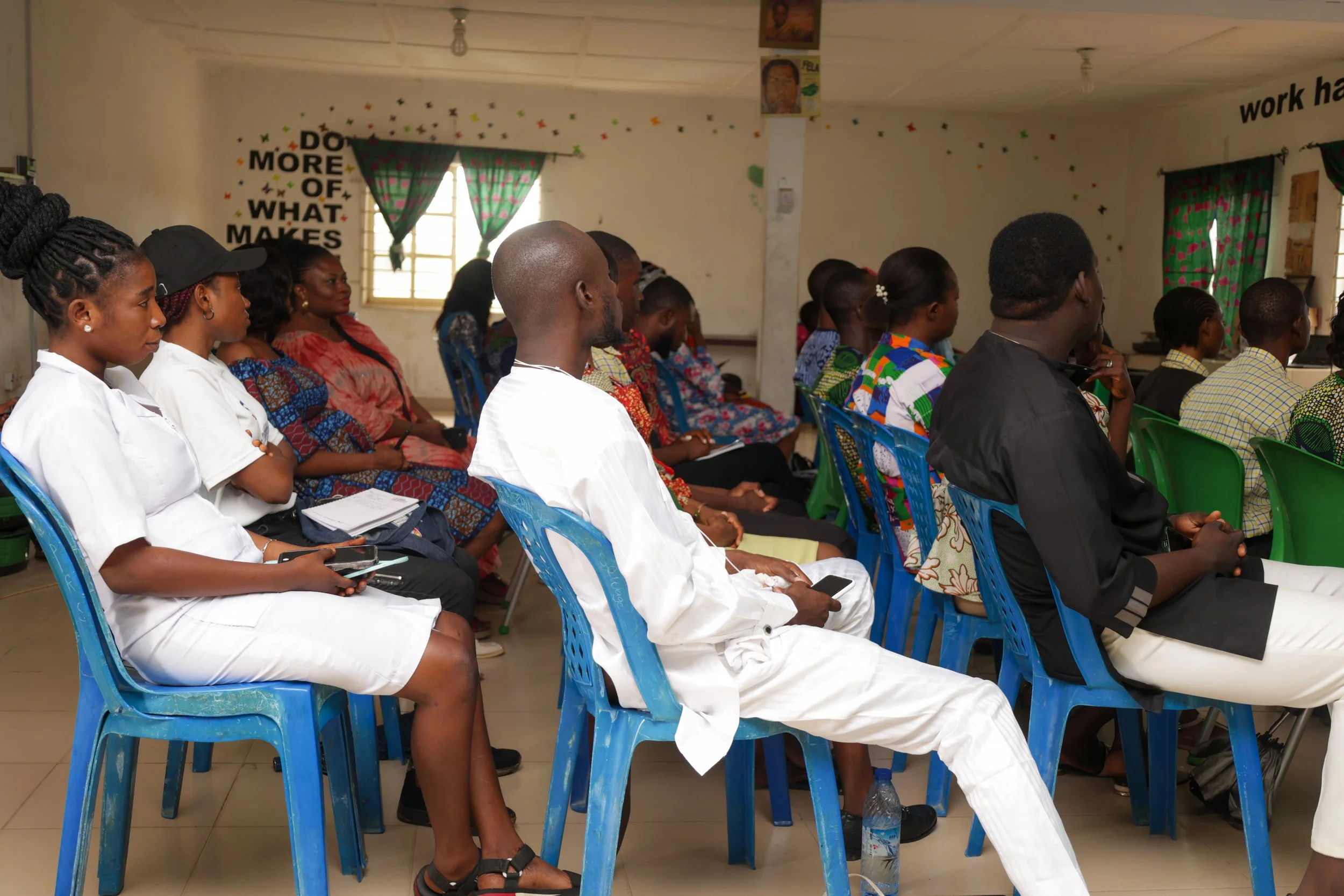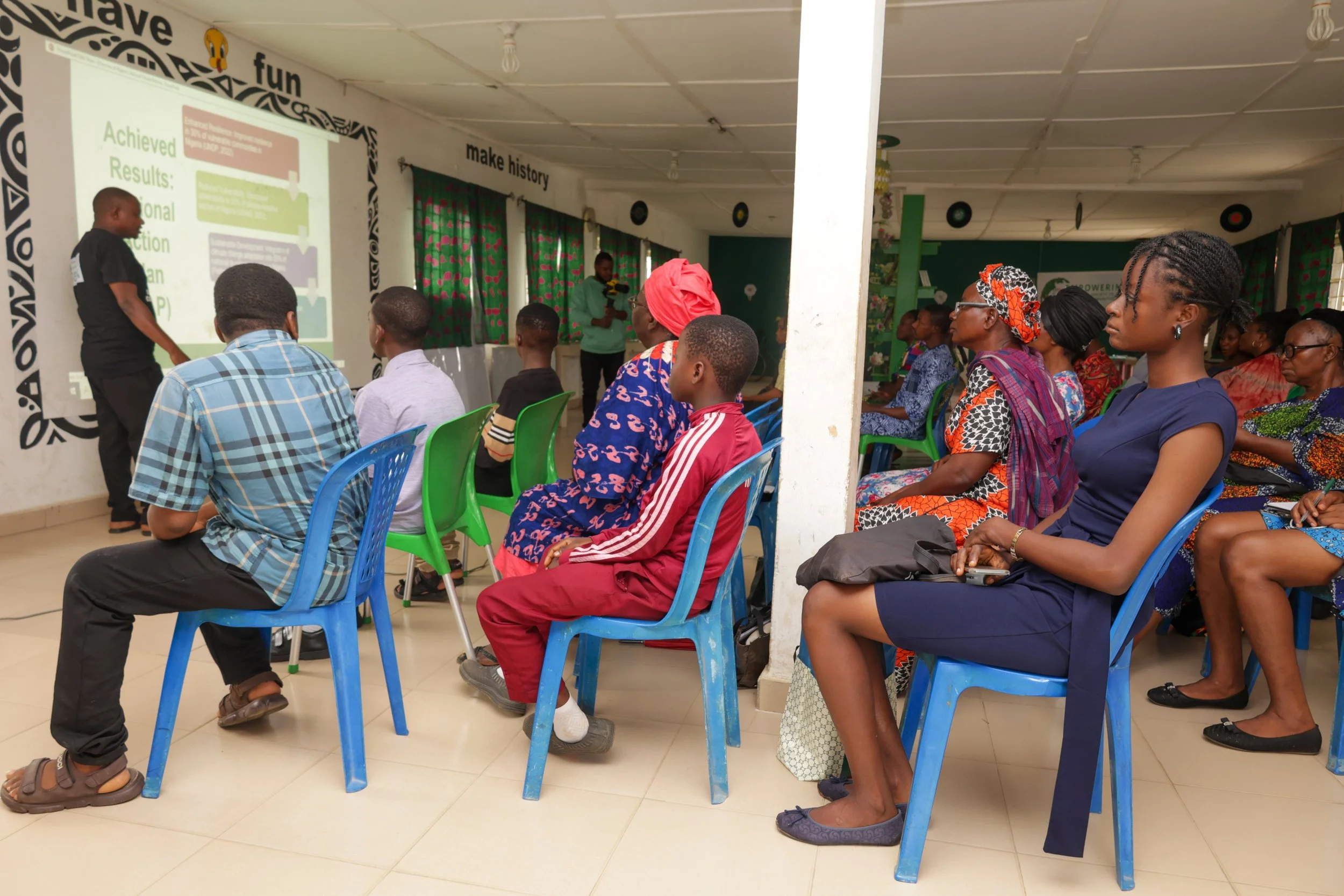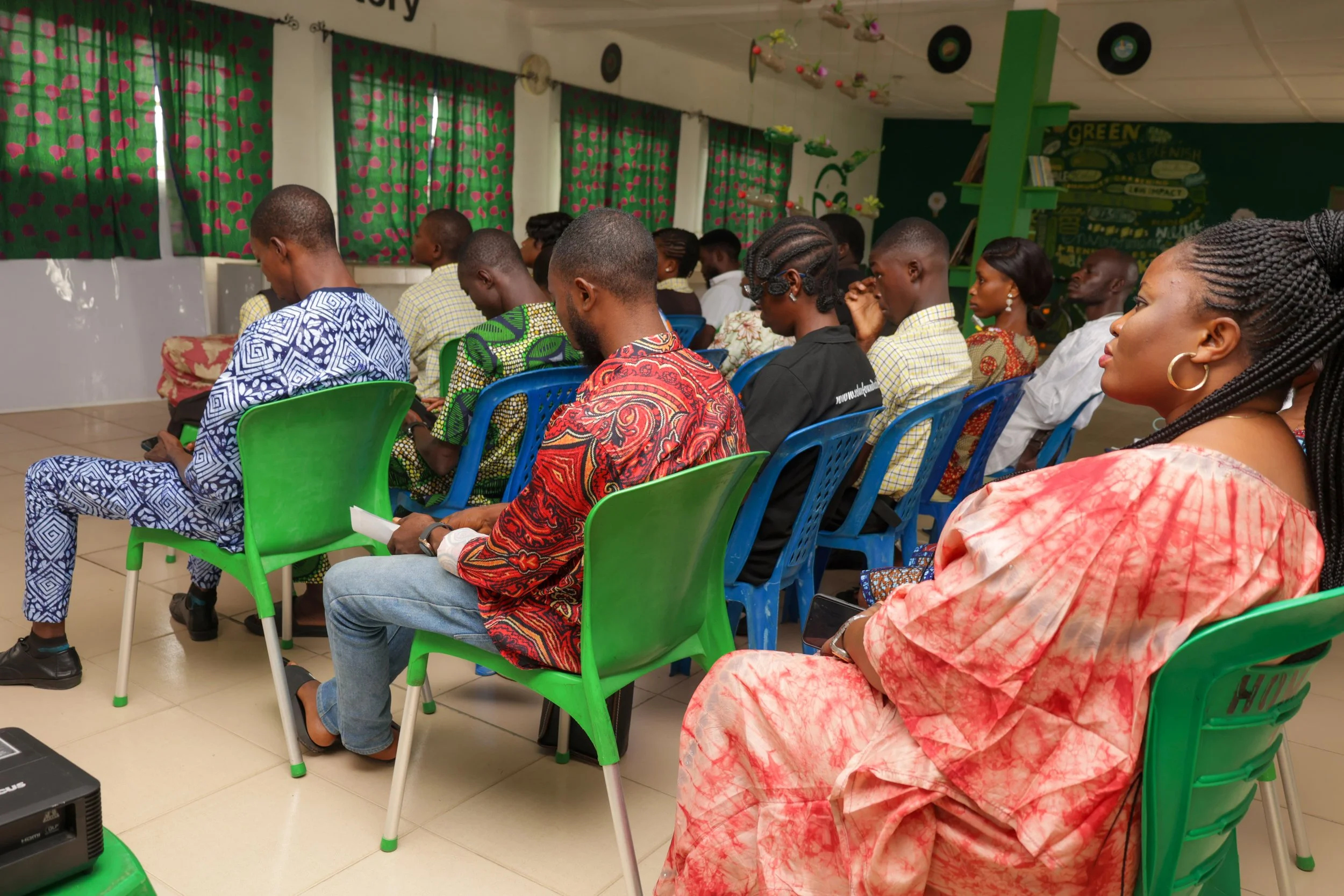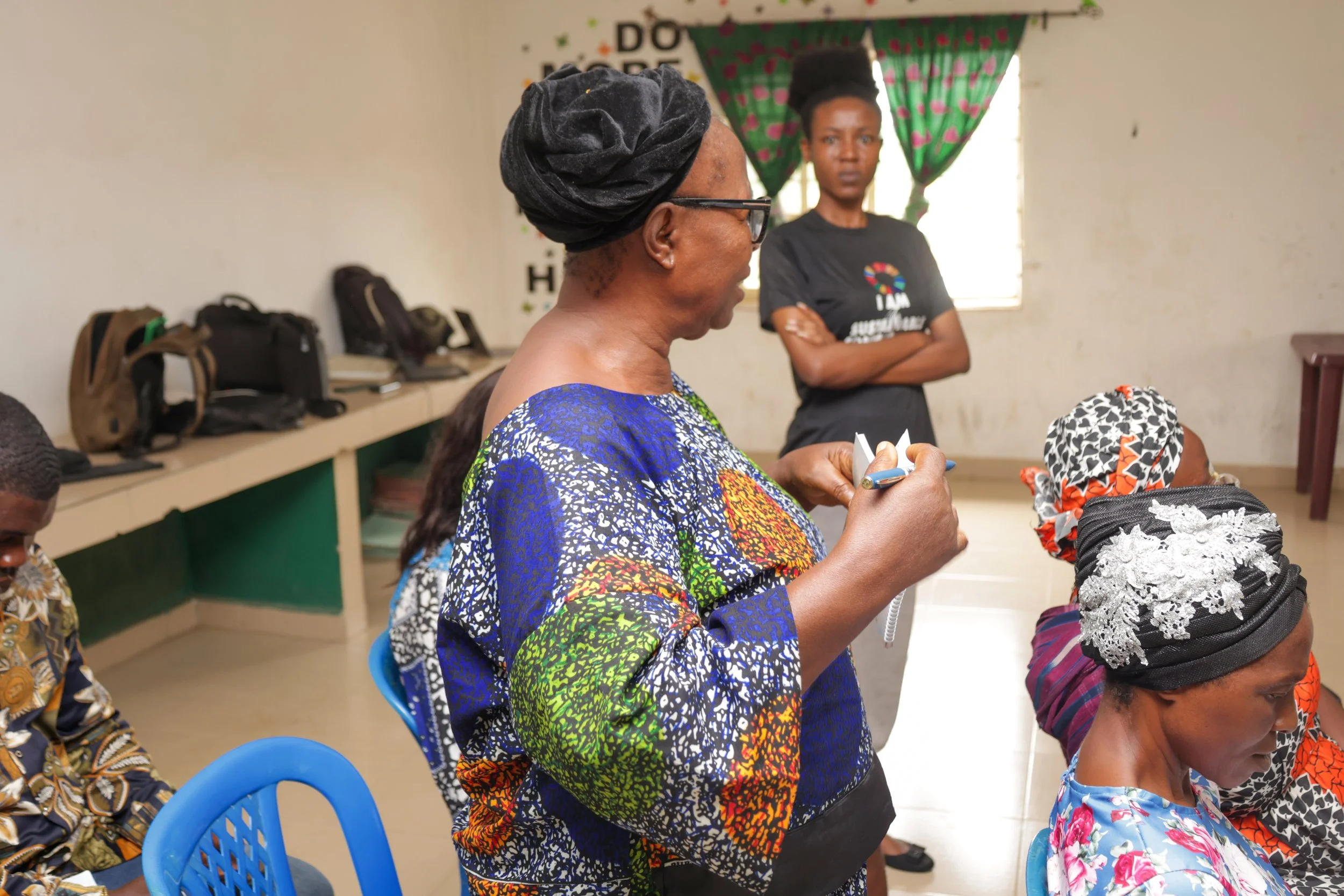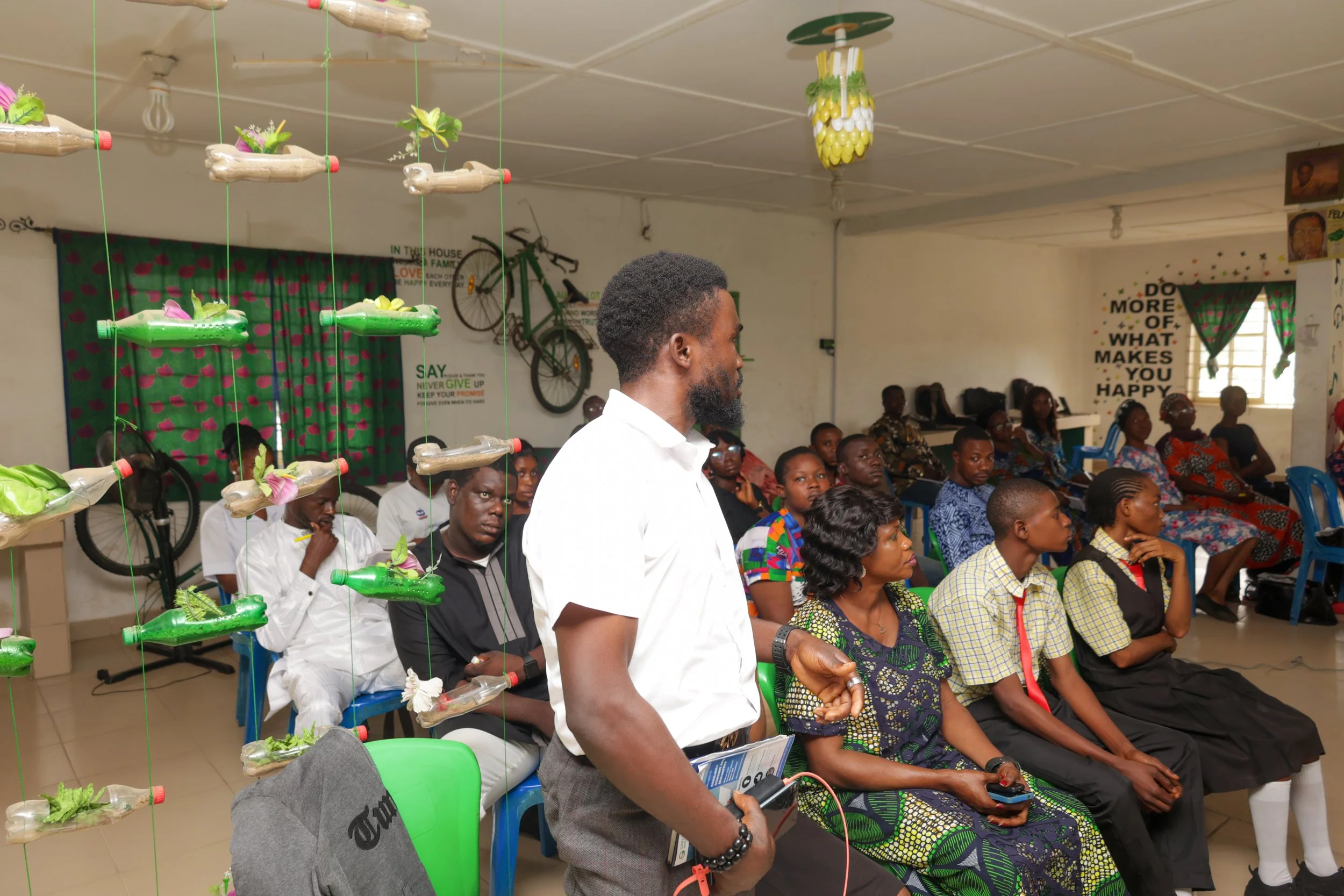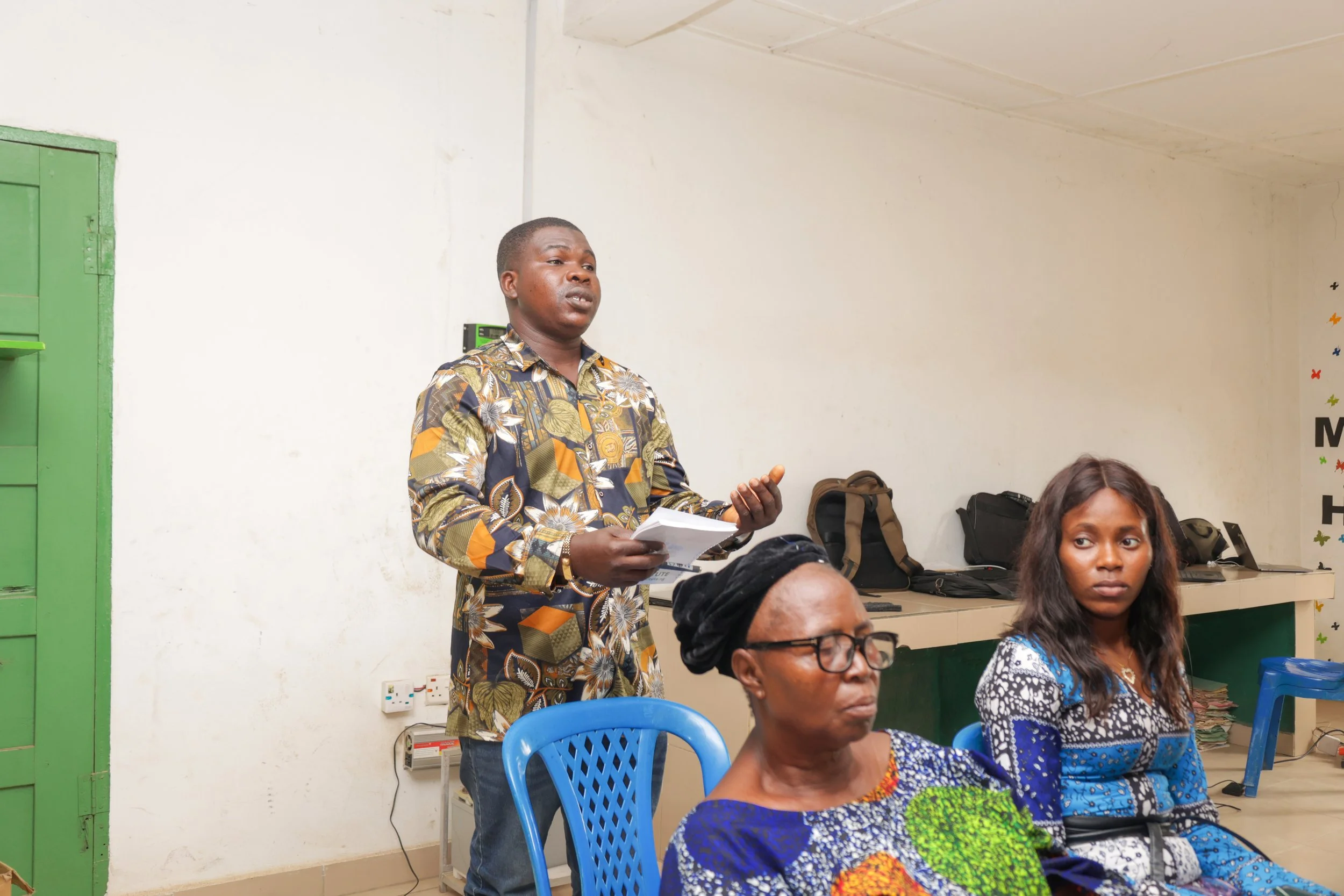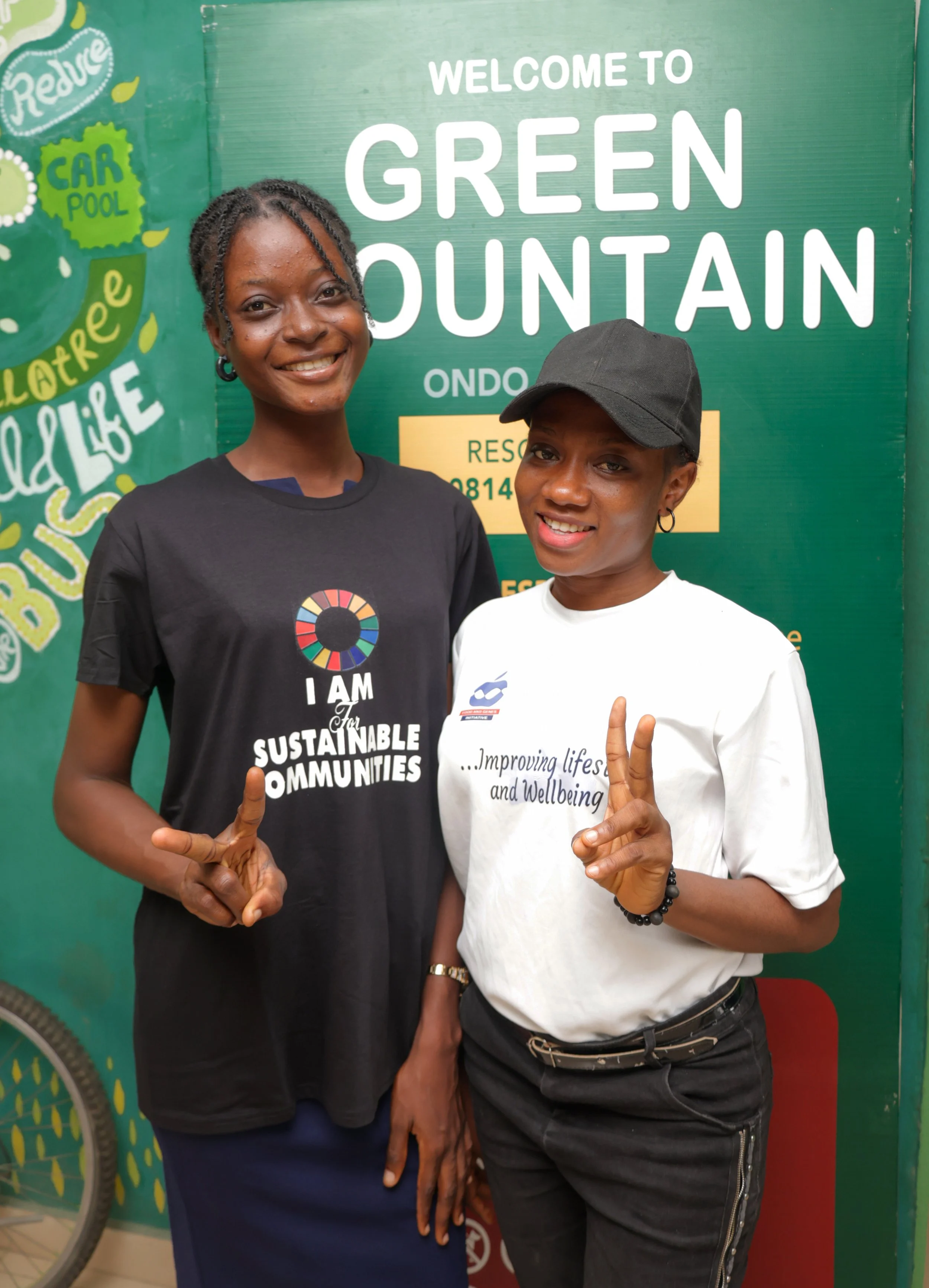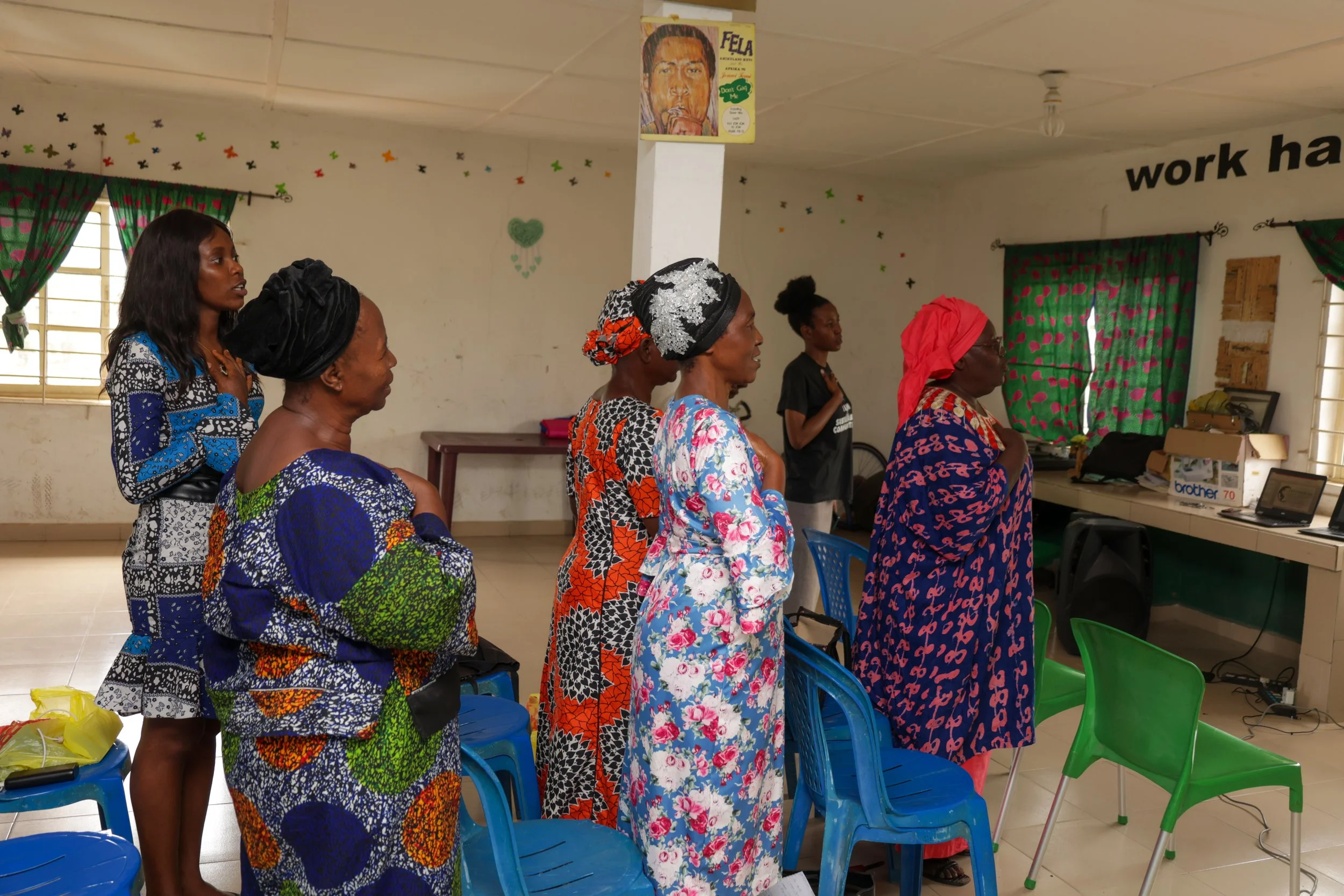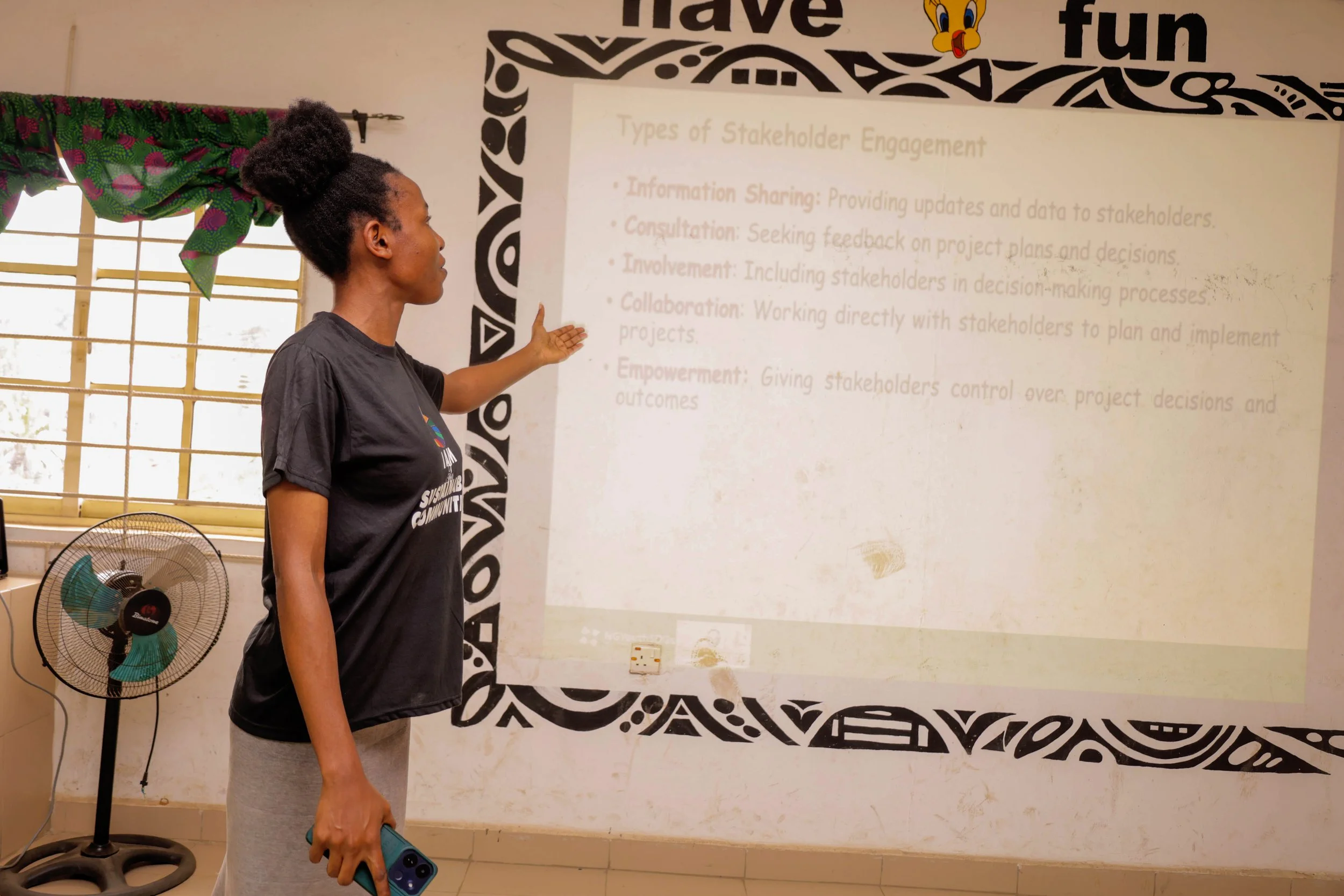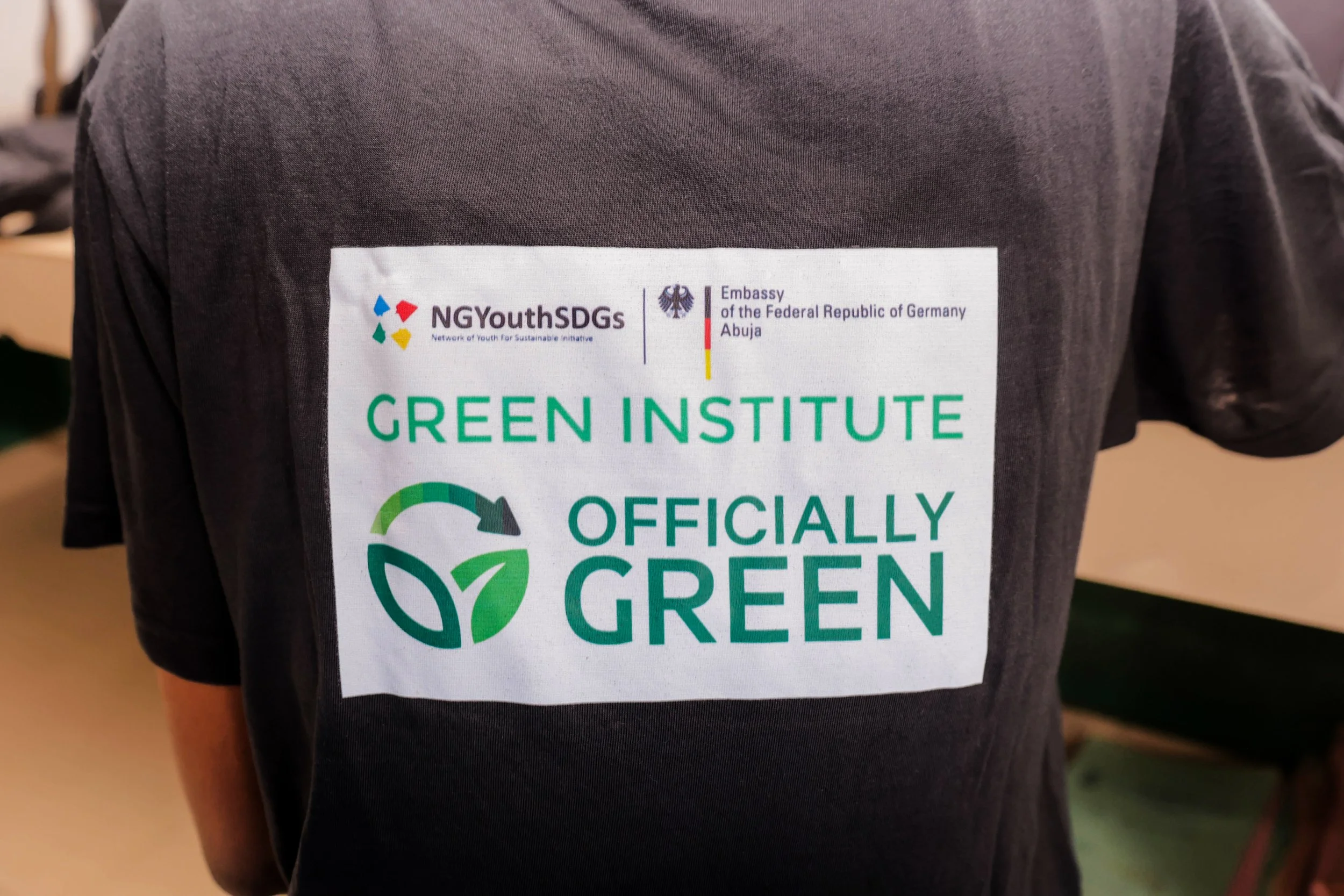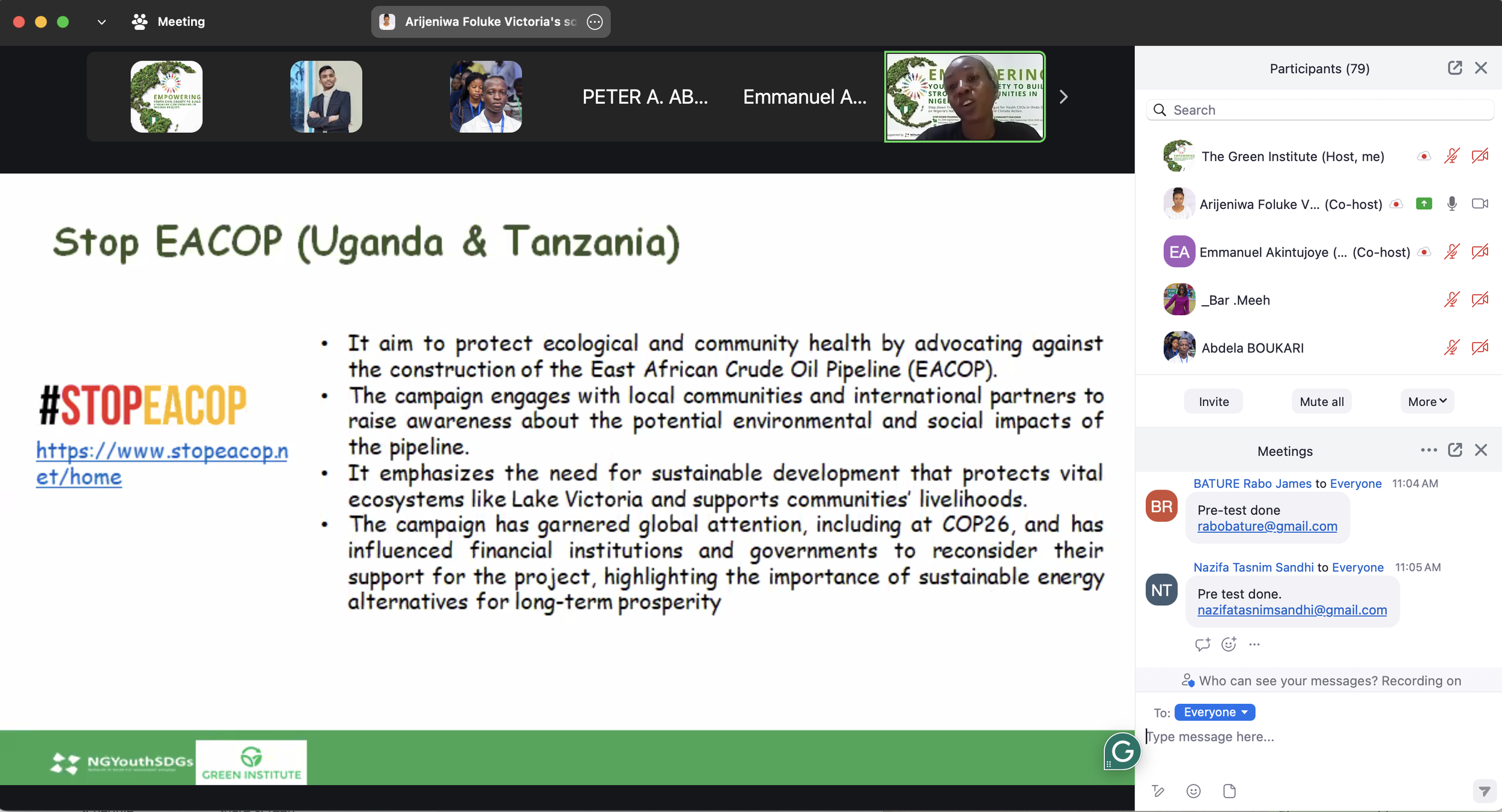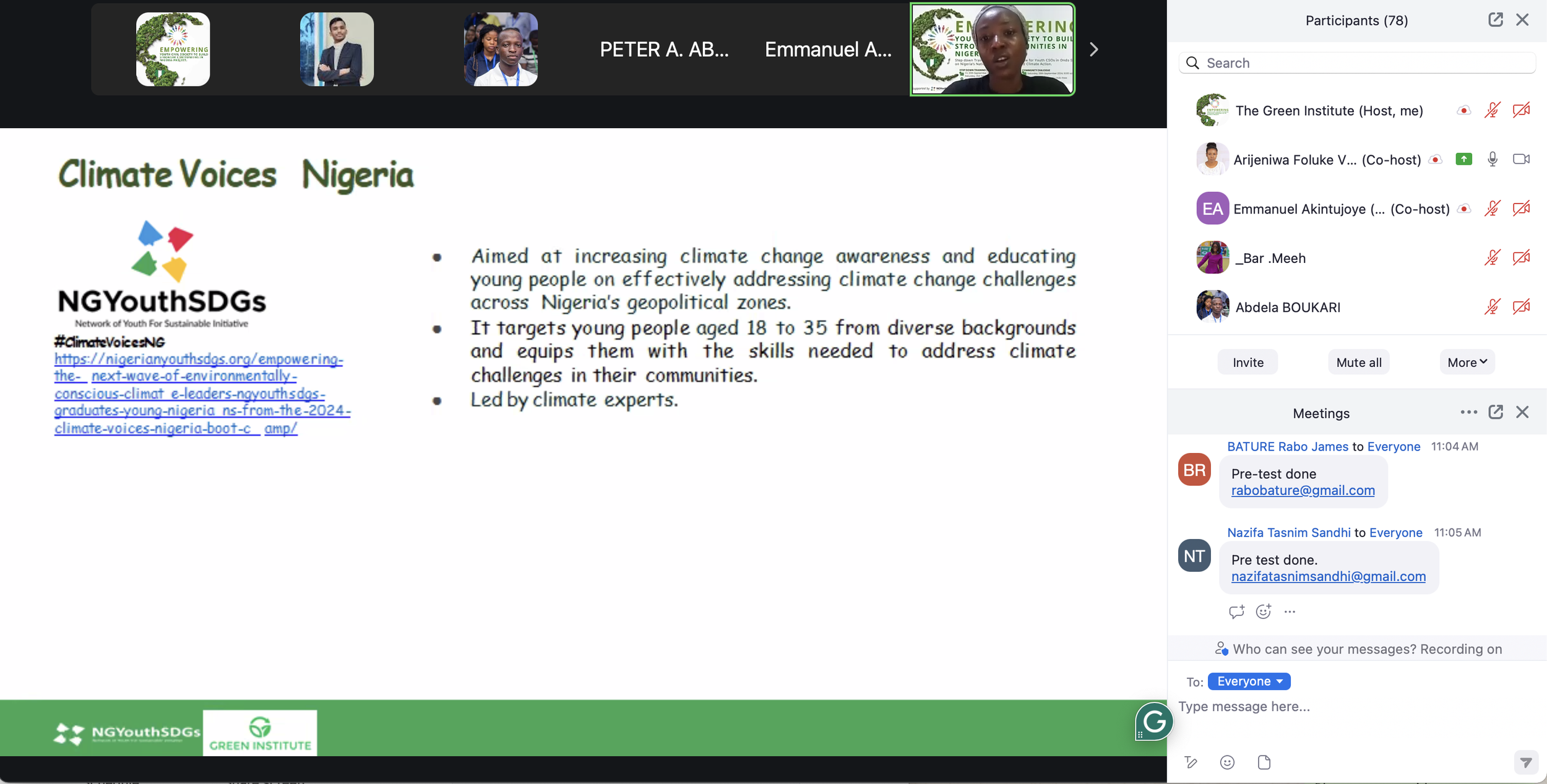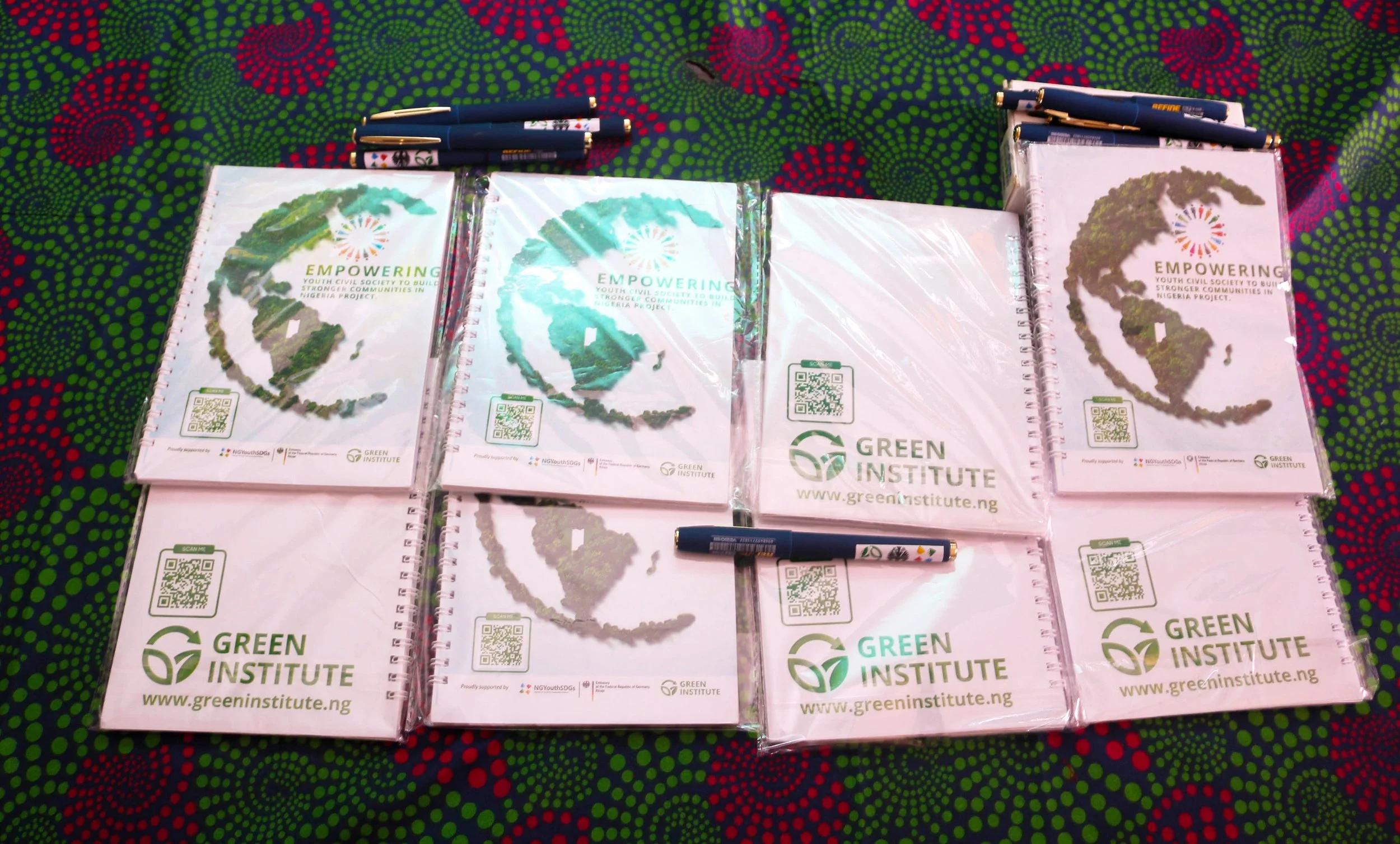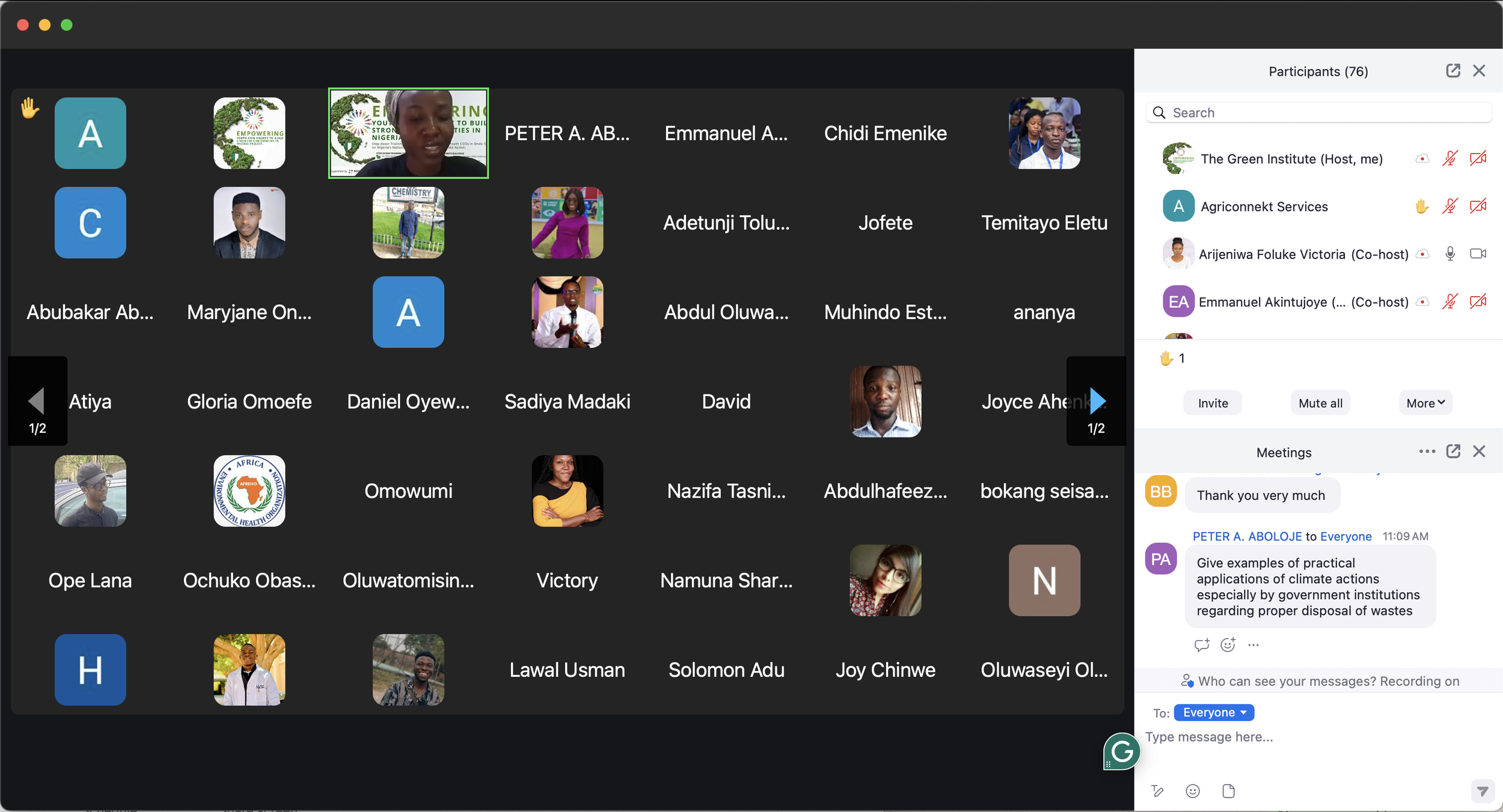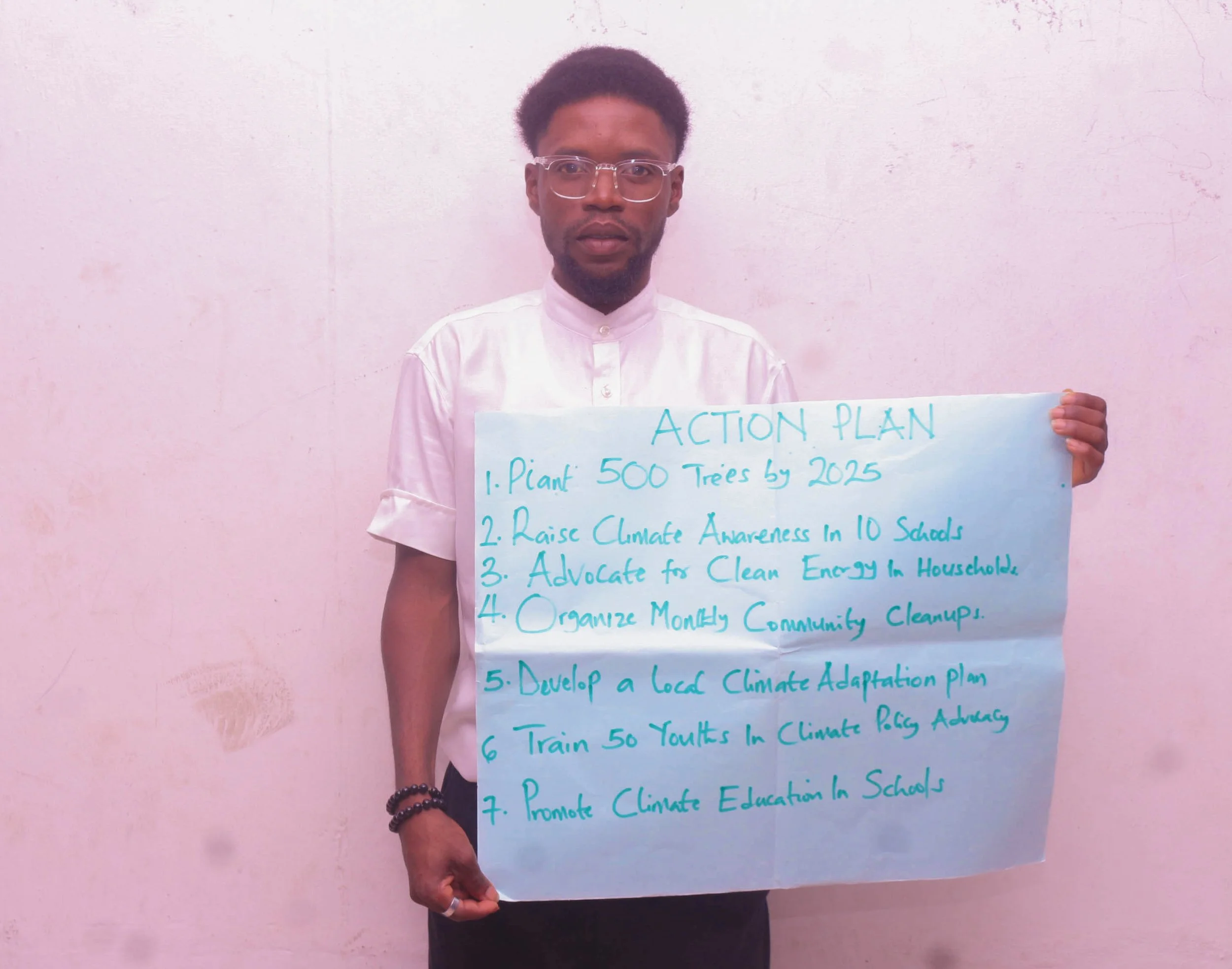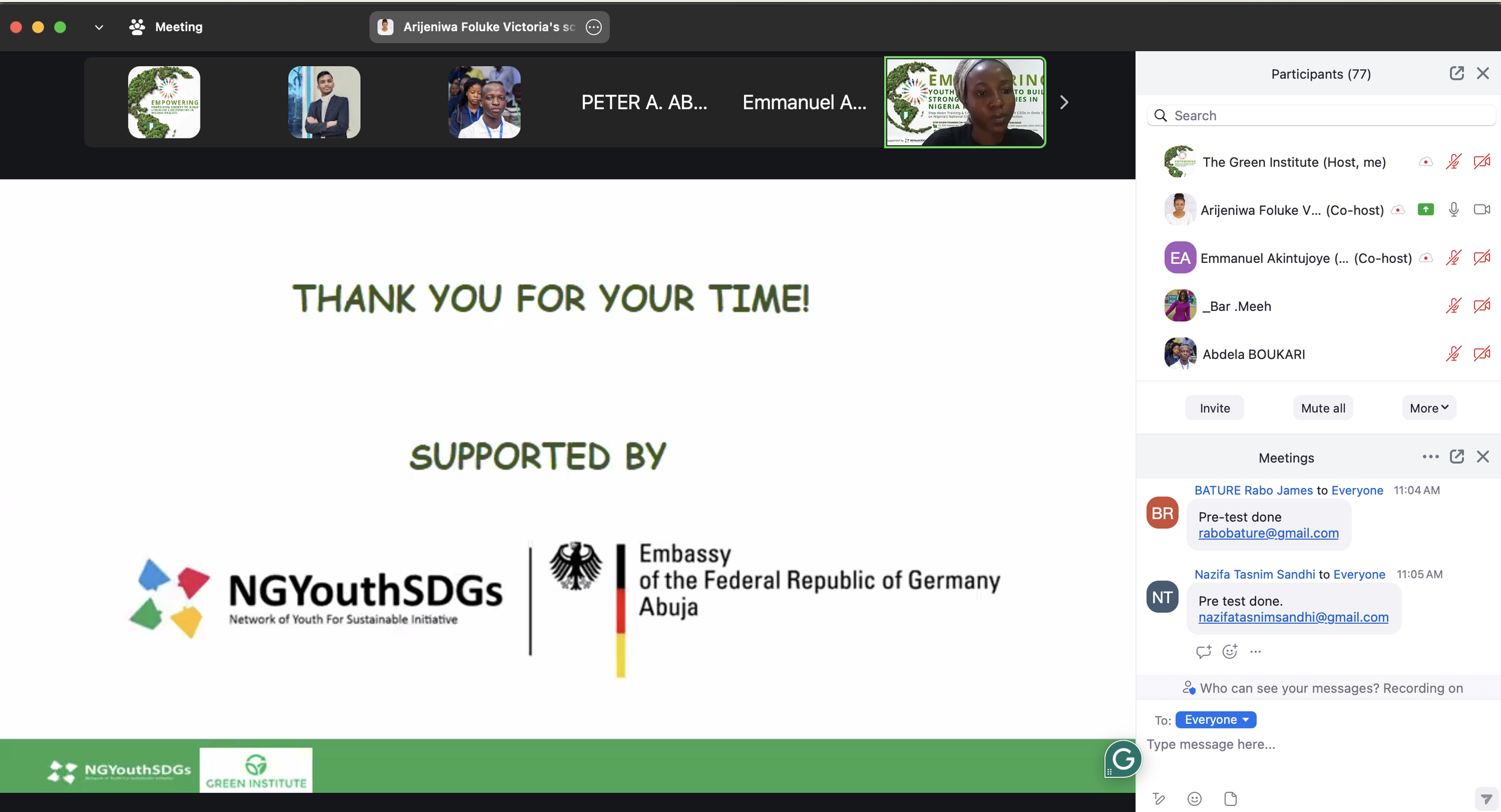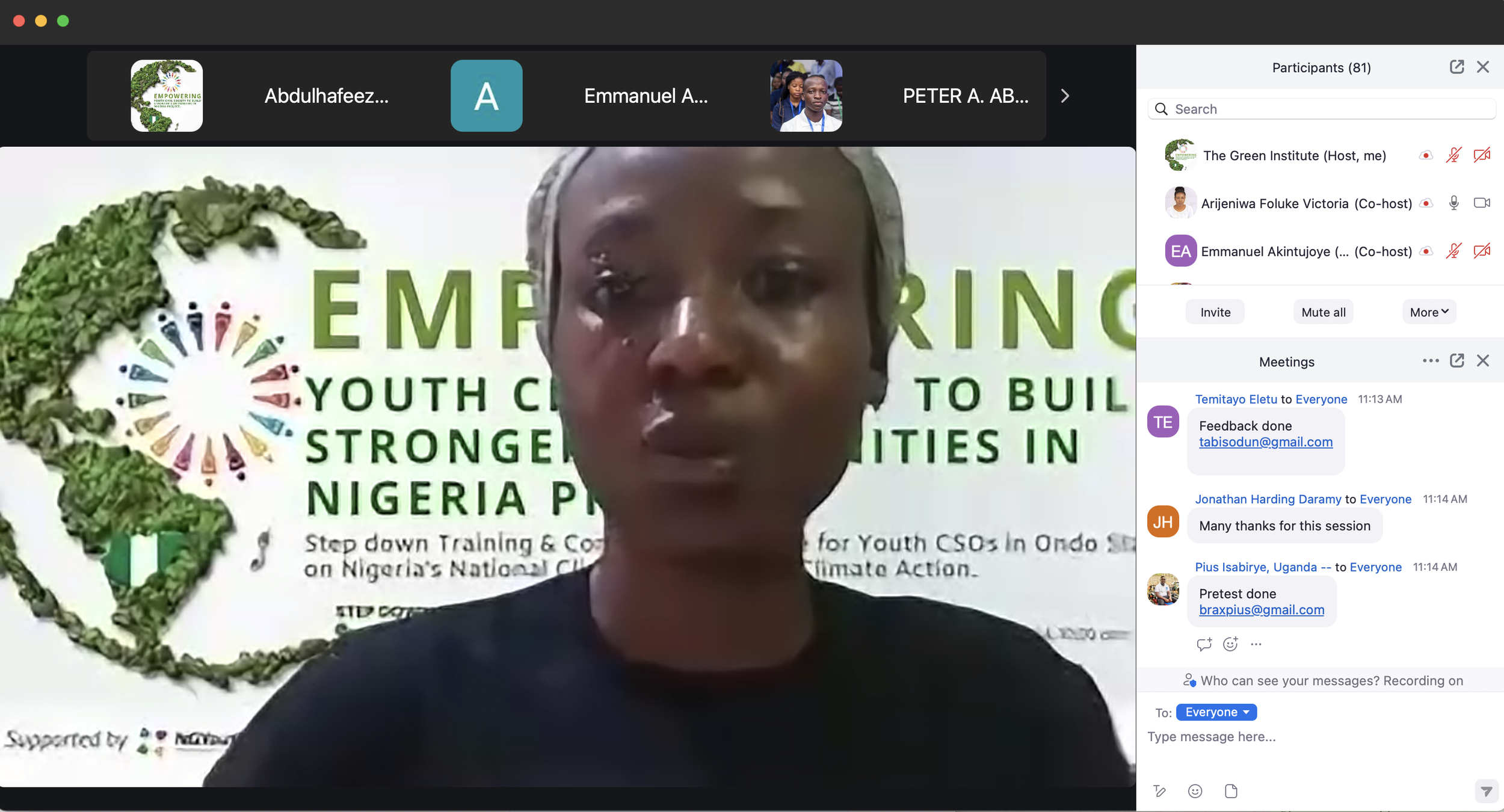THE GREENHQ
Ondo State, Nigeria – September 21, 2024
A dynamic initiative to address the growing climate crisis has made a crucial leap forward in Ondo State, Nigeria. The Green Institute, supported by the Network of Youth for Sustainable Initiative (NGYouthSDGs) and the Embassy of the Federal Republic of Germany Abuja, successfully concluded a two-day Step-Down Training aimed at empowering youth-led civil society organizations (CSOs) to lead climate action in their communities. Held on September 20-21, 2024, the training brought together over 100 participants, with 27 attending in person and 81 joining virtually. The participants represented various CSOs across the state, eager to gain the skills and knowledge necessary to advocate for climate policy reforms, bring youth voices to the centre of climate negotiations, and implement local climate action.
Empowering the Next Generation of Climate Leaders
The training focused on enhancing the capacity of 11 youth-led CSOs to assume leadership roles in climate advocacy and project execution. Critical topics such as climate communication strategies, project planning, and community-led adaptation plans were key highlights of the event. Participants were equipped to develop actionable climate strategies tailored to the unique environmental challenges facing their communities, including ways to influence national policies like the National Adaptation Plans (NAPs) and the Nationally Determined Contributions (NDCs).
"This initiative is about handing the reins of climate action to young people, women, and persons with disabilities (PWDs) who are directly affected by its consequences," said Ms. Foluke Arijeniwa, Programme Coordinator at The Green Institute. "We believe that by equipping youth with the right tools, they can become powerful advocates and implementers of climate solutions in their communities, while ensuring environmental sustainability and contributing to national climate goals."
Key Outcomes of the Training
Enhanced Climate Knowledge: Participants reported a remarkable 90% increase in their understanding of climate policy and advocacy techniques, enabling them to better influence local and national climate action.
Actionable Climate Plans: Each of the 11 CSOs developed comprehensive local climate action plans to address issues such as deforestation, flooding, and desertification in their regions.
Increased Awareness: Interactive sessions and group activities raised awareness about the importance of local climate solutions, motivating participants to take immediate action in their communities.
Aligning with the Global Agenda for Sustainable Development
The Step-Down Training emphasizes inclusivity by involving youth, women, and persons with disabilities (PWDs), highlighting the commitment to leaving no one behind. This approach supports SDG 10: Reduced Inequalities and SDG 5: Gender Equality, ensuring that marginalized groups are integrated into climate action and advocacy efforts. Additionally, the training aligns with SDG 13: Climate Action, while also contributing to SDG 4: Quality Education and SDG 17: Partnerships for the Goals. By empowering youth-led CSOs and fostering collaboration, the project demonstrates that local climate action is part of a broader effort to achieve sustainable development globally.
Looking Ahead: Community Dialogue
Following the success of the training, The Green Institute is preparing to host a Community Dialogue session later this month. This event will bring together 80 participants, including community members, government representatives, and local stakeholders, to collaboratively discuss climate adaptation strategies. The dialogue aims to foster collaboration at the grassroots level, ensuring that the voices of those most affected by climate change are included in policy-making and community planning. Youth voices will be central in driving negotiations on climate action and the implementation of both the NAPS and NDCs at local levels.
Challenges and the Path Forward
While the training has laid a solid foundation for youth-led climate action, challenges remain in ensuring sustained engagement and the successful implementation of climate action plans. The Green Institute in partnership with the Network of Youth for Sustainable Initiative (NGYouthSDGs) is committed to providing ongoing support to these youth-led CSOs, assisting them in turning their plans into impactful projects that address deforestation, water scarcity, and other climate-related issues in Ondo State.
"As the project continues, The Green Institute remains dedicated to nurturing these young leaders, fostering long-term sustainability, and ensuring that local solutions to climate challenges are realized," concluded Arijeniwa.
This youth-driven approach to climate action represents a vital step forward in addressing environmental challenges in Nigeria, with Ondo State leading the way as a hub for grassroots climate leadership and the inclusion of youth voices in the global climate agenda.

